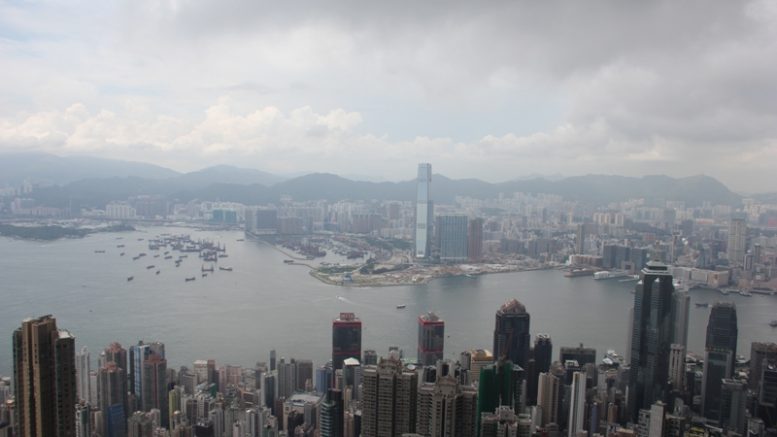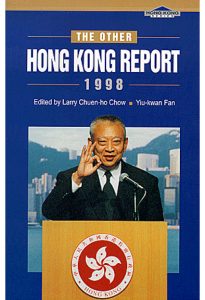By Chris Yeung —
In many aspects, Hong Kong is moving backwards while at the same time, intriguingly, tinkering with the record of history. The latest edition of Hong Kong’s official yearbook, or more accurately the way it was restructured, is yet another reminder of the sorry tale of the city.
And for those who had helped pen The Other Hong Kong Report, an annual report written by scholars and experts from different walks of life in the final years of British rule (including this writer), the disappearance of the history section says volume of the sea changes in Hong Kong.
Hong Kong 2022, the latest annual yearbook published by the Government released in mid-November, saw the deletion of a section on the city’s history for the first time since the report was published in the 1970s.
Entitled History, the nine-page section in the 2021 Yearbook cited evidence of ancient human activities at many sites along the shoreline to testify human activities here dating back to 6,000 years ago. It revisited the city during the two World Wars and the post-war era, the socio-political changes before and after the 1997 handover.
The Information Services Department, which is responsible for the yearbook, said in a statement that the publication had “a new layout and structure,” and “provides readers with an overview of life in Hong Kong in the year 2022.”
“In 19 chapters, the yearbook covers the administration, legislature, legal system and economy, detailing the government policies, achievements and developments in the year,” the statement read.
In its response to enquiry by the Chinese-language Ming Pao, the department did not directly explain why the history section was dropped.
Professor Lau Chi-pang, an academic who specialised in Hong Kong history, said it might not be appropriate for the Government’s annual report to recap the city’s history if the report was aimed to report the government’s work in the previous year.
The Hong Kong Yearbook, he said, had adopted the “British viewpoints of history” over a long period of time. “Now that we have entered a new era and adopted a new style, (we) don’t need to handle the issue of how to express (Hong Kong) city if we no longer have a section on it.”
Professor Lau is now an Election Committee member of the Legislative Council.
Outside the main hall of the new Legco Complex located next to the Government Headquarters at Tamar, the portraits of the previous presidents of Legco, both before and after 1997, were hung on the wall near the entrance.
But a new beginning, or what Professor Lau said “new era”, was in the air when the present batch of lawmakers, former presidents and the government team led by Chief Executive John Lee celebrated the 25th of the SAR legislature on November 17.
Although it is absolutely correct to say the SAR legislature is now 25 years old, it is part of the history of Hong Kong’s Legislative Council that was set up in 1843.
Superficially, Professor Lau has a point saying Hong Kong 2022 is Hong Kong in 2022, not Hong Kong in ancient times and colonial times.
The simple truth is, as historians would agree, knowing the past helps understand the present, equip and build a brighter future.
Any attempt to tinker with the history of Hong Kong and the way it has been put on the record for the public and the world could risk deepening the feeling of gloom and doom about the future of the city.
It will be counterproductive if the idea of “opening a new era”, “a new beginning” is being construed as a cut-off from the past, which is not only factually wrong, but damaging to public confidence in the continuity of systems and lifestyles of the city.
The deletion of the “history” section from the annual report was first reported in Ming Pao. The Hong Kong Free Press did a follow-up story. Like many other things that have disappeared from public limelight, the missing section went unnoticed by many people.
Call it the new normality of Hong Kong.
In times of new Hong Kong, the “new” Hong Kong Yearbook may have stirred up a feeling of nostalgia among those who still remember an alternative annual report on Hong Kong, The Other Hong Kong Report, that could be dated back to 1989.
Published by the Chinese University of Hong Kong, it was jointly written by academics, journalists and experts from different fields as a fact-based record on the various developments of Hong Kong. The report ceased publication after 1998.
The days of members of the society coming up with another Hong Kong report and that the government’s annual yearbook was not the only voice are long gone. The blurring and burying of the records of history say something about the fate of the city.
This article was first published on Green Bean Facebook.




Be the first to comment on "Missing ‘history’ section in HK Yearbook"